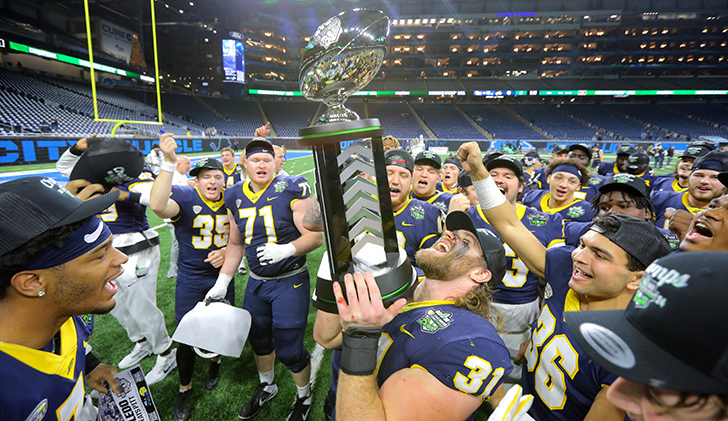Entertainment
Entertainment or exploitation: The ethics of true crime media – The Arbiter

In the world of true crime, victims’ stories are being retold, dissected and packaged for mass consumption, often at a significant cost.
True crime content is prolific today in a variety of mediums, including podcasts, documentaries, TV shows and books. The genre has amassed enormous popularity, but true crime often has a detrimental effect on the lives of the real people involved. When creators commodify a story about the most traumatic events of a person’s life, these events are frequently retold in a way that prioritizes profit and entertainment, disregarding the gravity of the situation as well as the humanity of victims and their families.
The true crime genre dates as far back as 17th century London, where significant advances in printing technology and widespread literacy inspired the production of a number of crime publications. Society’s fascination with the macabre drove the circulation of crime pamphlets and ballads detailing gruesome murders around Britain.
Today, the digital age has given new life to a genre that has existed for centuries, giving more and more people the ability to access and distribute information about cases. 22 of the current Top 100 on Apple Podcast Charts are categorized as true crime, and there are two true crime series currently in Netflix’s Global Top 10, as of Sept. 10, 2024.
The true crime industry often dismisses the trauma that real people have faced and takes advantage of vulnerable people. The media storm facing those who have undergone horrific experiences can easily worsen the situation for survivors, as well as the loved ones of victims.
Natalie Day, LCSW, a clinical social worker and therapist who specializes in trauma, described how this type of content can impact people who were affected by the original event.
“Whenever someone is re-exposed to something that has caused them harm in the past, the nervous system reacts,” Day said. “If they haven’t had the opportunity or the time to do their own work yet on those reactions, it can be very scary and unexpected.”
For the people who lived through these events, true crime isn’t entertainment. It’s a reminder of their trauma and can be a massive trigger to the nervous system.
This content is also made in many cases without the consent or even knowledge of the people whose stories are being told, such as Netflix’s hit series “Monster: The Jeffrey Dahmer Story”. After the show’s release, multiple family members of victims who were depicted in the series came forward with complaints, many even expressing that they were never contacted about the show.
In an essay for Insider, Rita Isbell discussed the documentary and its depiction of her brother, Errol Lindsay, who was one of Dahmer’s victims. Isbell described the show as “harsh and careless”, stating that Netflix made no effort to contact their family when creating the series.
Shirley Hughes, whose son Tony Hughes was also a victim of Dahmer, described her feelings about the series to TMZ.
“It’s a shame that people can take our tragedy and make money,” Hughes said. “The victims never saw a cent. We go through these emotions every day.”
This lack of consent and disregard for the emotional wellbeing of victims and their families is a common thread in true crime media. By prioritizing profit and sensationalism over the dignity of those affected by the events, true crime content perpetuates a cycle of retraumatization and exploitation.
True crime content poses problems within the criminal justice system itself, promoting a victim-blaming mentality and affecting jury biases in court proceedings. Lisa Bostaph, a Criminal Justice professor at Boise State University, described the issues that can arise.
“It allows us to look at those crimes and say ‘That would never happen to me because I wouldn’t make the same decisions that that victim made,’” Bostaph said. “It allows us to have this sense of safety. ‘I’m not like that person. These things will never happen to me’. When we try cases with living victims, jurors can bring that judgmental viewpoint to victims and may be less likely to convict because in order to maintain their just world hypothesis, in order to maintain their perspective that ‘this could never happen to me’, they have to believe that the victim is to blame.”
In light of these problems occurring within the true crime industry, it can be difficult to discern what content is and isn’t ethical to consume. Content that clearly states it was made with the consent of those involved, or better yet, stories that survivors themselves are telling, is far more likely to tell the real story and avoid negatively affecting those involved.
Day outlined her criteria for consuming content like true crime to determine whether it represents and treats the people involved ethically.
“Has someone volunteered for this? Are they participating? Are they consenting to the process?” Day asked. “That makes a difference. Whereas if it’s covered secondhand, thirdhand by the media, the person in question doesn’t always have a chance to consent. Consent is everything. So if someone’s willing to volunteer and share their story, that’s something as a therapist that I would want to hear.”
The true crime industry is exploitative, turning the pain and trauma that people have experienced into content for commercial gain. In a genre built on real-life trauma, ethical consumption requires awareness and responsibility.
Prioritizing content that centers the voices and consent of survivors can help shift the industry away from victimization and toward storytelling that respects the humanity of those affected. When the focus is on profit over people, the cost is far too high.









